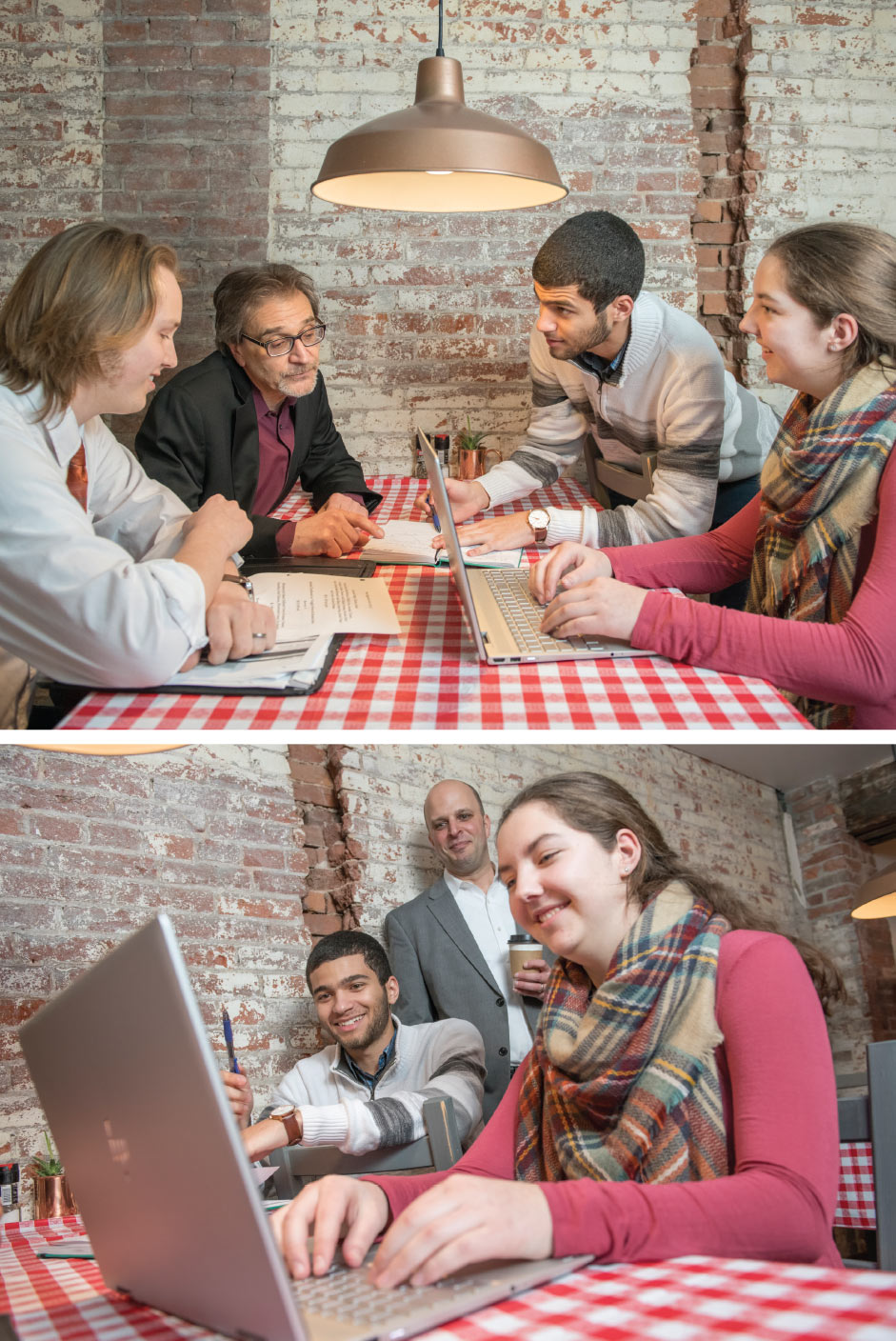‘Learning Is Doing’: York College of Pennsylvania Redefines Standard of ‘Learning’
Engaging by doing … from day one, young adults discover learning without limits. Challenged to confront real-world problems that blend theory and practical applications, students at York College of Pennsylvania find that project-based learning can give them the knowledge and connections to grow as professionals.
At York College — led by the Center for Community Engagement, the Center for Academic Innovation, the Academic Affairs department and College Provost Niesen de Abruna — York College has launched a new focus on project-based learning, making it the standard of how learning occurs at York College. This focus puts emphasis on applying learning to real-world projects and real-world results.
Revolutionizing Learning
Dean of the Center for Community Engagement Dr. Dominic DelliCarpini says that project-based learning targets active, not passive, engagement: “Learning is not listening, and teaching is not talking. Teaching is facilitating learning that students experience by doing.”
At a recent conference focused on project-based learning attended by 25 invited colleges (including York College) at Worcester Polytechnic Institute in Worcester, Massachusetts, Dr. Randy Bass — vice provost for education and a professor of English at Georgetown University — proclaimed, “The future of higher education, and indeed the very survival of your institutions, entirely pivots on what you will be doing here in the next three days.” Bass and colleges like York College that are forging forward with project-based learning understand that higher education has to change to fit today’s students.
“That model is active, project-based, experiential. That is what we are focusing upon for our students: an education that — to quote poet Adrienne Rich — students are asked to ‘claim,’ not one that they receive,” Dr. DelliCarpini says. “Learners, deep learners, learn by doing. The experiences they recall are those that produce something of value and the joy they take in learning comes from saying, ‘I did this’ or ‘I made this.’”
Research on project-based learning aligns with this idea. A study published in the Journal of Experiential Education evaluated the effects of experiential learning depth (the amount of time commitment) and breadth (the quantity and diversity of experiences) on graduating senior student outcomes. Both depth and breadth were associated with acquiring a broad general education, writing clearly and effectively, and contributing to the well-being of communities. The study’s authors, Jeffrey Scott Coker, Evan Heiser, Laura Taylor and Connie Book, add that “the ideal situation for a college student is likely to include both experiential learning depth and breadth — an approach that develops the full array of knowledge and skills that are highly advantageous for succeeding in life after college.”
Project-Based Learning at Work in York
Dr. John Hughes, Dean of the School of the Arts, Communication and Global Studies and Director of the Hospitality Management Program, is one of many York College faculty members continually seeking to create project-based, experiential learning partnerships among York College, the City of York and York County. The summer edition of YRK Magazine profiles one such partnership with the York County Industrial Development Authority (YCIDA) and The Yorktowne Hotel. Hughes emphasizes that project-based learning is all about connecting learning to the world and developing critical thinking and problem solving skills that are essential to career success in any industry, not just the hospitality industry specifically.
In the case of The Yorktowne Hotel rehabilitation, three students — a senior, junior and sophomore — each participated in a spring independent study program that brought them into conversations with architects, contractors, designers, hotel management professionals and investors. Over the course of the spring semester, these students worked on a project related to The Yorktowne Hotel’s redevelopment and presented their findings and recommendations to stakeholders at the end of the semester.
“You will see our students working with not only the Yorktowne project, but with nonprofits, with new concepts such as Keystone Kidspace, with York Exponential (robotics) and with the greenhouse our engineers are placing at Goode Elementary School. You will see our students working with the York County History Center and the Goodridge Freedom Center to remake our local history in more inclusive ways,” adds Dr. DelliCarpini. “You will see our social scientists working through the Arthur J. Glatfelter Public Policy Institute to gather and act upon community research on poverty, education and social mobility. You’ll see our York College Community Opportunity Scholarship Program students launching their ‘Generations of Hope’ initiative — partially funded by a Women’s Giving Circle grant — to help bring transformative change to York’s schoolchildren.”
York College also continues to seek and implement various Community-Based Learning (CBL) initiatives that merge learning outcomes with community interactions and allow students to merge learning with community interaction. Jo-Ann Orcutt, the director of programming for the Center for Community Engagement, continually aims to work with community partners that can create the types of experiences that students can learn from and in ways that benefit the business and organization partners. For students, it’s about giving their time and ideas while also gaining a sense of self. For faculty, it’s the ability to equip young adults with the tools to arrive at their own solutions to real-world challenges. And for members of the community, it’s a way to embrace the intellectual capital that exists in York.
“We welcome more partners in this work, which will bring mutual benefit to the community and to our students, who will learn by doing,” Dr. DelliCarpini says, “because teaching is not talking. Learning is not listening. Learning is doing.”
To learn more ways to partner with the York College Center for Community Engagement, contact Dr. Dominic DelliCarpini at 717.815.1303 or email dcarpini@ycp.edu.
York College of Pennsylvania
441 Country Club Rd.
York, PA 17403
717.846.7788

